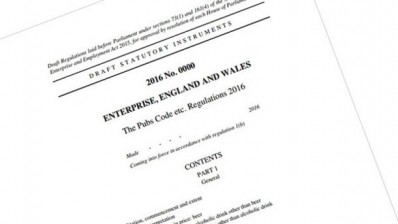Pubs code
"Even property experts may struggle to understand it" - Why MRO take up has been low

The overall sweeping statement I would make is that the pubs code is an extremely complicated piece of legislation to understand.
It’s worded in a very technical way as, inevitably, all legislation is and it’s the sort of thing that you pick up, but you put it down and forget about it if you can’t understand it easily. You can’t afford to do that, because lots of your opportunities in the market rent-only option (MRO) process have time constraints associated with them.
In places, the code is so complicated that even property experts may struggle to fully understand it. For an average publican, whose expertise centres around serving customers and running a business, getting to grips with those complexities can be a big challenge.
Licensees urged to take advice
I think that a lot of people thought they would just be able to say to their pub company: "I would like to look at my free-of-tie options, give me a quote". But, in fact, they only have those opportunities at certain points.
However, I know that at least one major pub company recently held an event at which tenants were invited to meet their suppliers and also find out more about the pubs code. They were very transparent about the differences between the relationship that a tied tenant versus free-of-tie would have with them, with the aim of helping tenants to choose whether they want or need the additional services offered or simply a property to trade from.
Only time will tell whether ultimately it brings about the result that was intended – which was to give tenants a greater choice of lease options in the market place.
Falling short of expectations
The tenants in their local forums need to be talking about it, so that a picture of experience starts to build up. There will need to be some very specific examples of how cases are ultimately decided to help iron out some of the queries that keep arising.
For example, the code says that the tenant needs to produce three years' worth of accounts, but we don’t know how much detail those accounts need to be in or if they need to be backed up by VAT returns. Those are the kind of things that we need some answers to.
At the moment if I were putting my hand on my heart, I would say that I don’t think MRO has brought about what a lot of tenants were hoping it was going to do. Going forward, transparency really is key. The main thing for both pub companies and tenants is to communicate clearly with each other so that agreements can be reached that are in the best interests of both parties.







